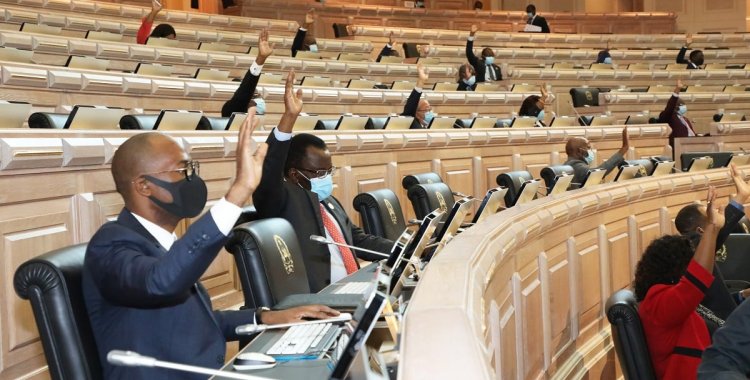The Bill on the Right to Petition, initiated by the parliamentary group of the National Union for the Total Independence of Angola (UNITA) was approved with 143 votes in favour, none against and no abstentions.
When presenting the project, UNITA deputy, Diamantino Mussokola, said that the approval of this legal diploma will allow the establishment of objective criteria in the Angolan legal system for the exercise of the right of petition by citizens, in virtue of recognizing that the exercise of democracy needs an instrument like the right of petition.
"This project aims to regulate and guarantee the exercise of the right of petition, to defend the rights of citizens, the Constitution, the laws or the general interest, by means of submission to sovereign bodies or to any public or private authorities, with the exception of courts, petitions, suggestions, claims or complaints", he said.
According to the deputy, the right to petition is one of the most important tools in a democracy for the exercise of citizenship, because it allows citizens to request, complain, denounce, propose or suggest a certain situation, subject or problem that is of interest to them, in the sense of see resolved the issue addressed by the petition".
Diamantino Mussokola stressed that the right to petition has been exercised by citizens with a certain frequency, "but they do not obtain answers from the authorities in a timely manner", stressing that in several cases public or private entities "do not even respond", as it is not mandatory constitutional.
The Bill on the Right to Popular Action, on the initiative of the majority, was approved with 164 votes in favour, none against and no abstentions.
In presenting the draft law, the Minister of Justice and Human Rights, Francisco Queiroz, said that it aims to establish the legal regime for popular action to be exercised before the administrative litigation bodies.
Francisco Queiroz said that the proposal includes both the challenge of administrative acts harmful to the general interests of the community and the compensation for damages caused by action or omission of the public administration.
The official underlined that the right of popular action as an expression of the fundamental right of access to the courts is enshrined in the Constitution of the Republic.
"In light of this constitutional provision, each and every citizen, individually or through associations of specific interests, has the right to legal action in the cases and terms established by law, which aims to annul acts harmful to public health, to public, historical and cultural heritage, to the environment and quality of life, consumer protection, the legality of administrative acts and other collective interests.
"The raison d'être of this draft law is also related to the need to ensure the application of the right to administrative popular action, provided for in the Proposed Administrative Litigation Procedure Code, as well as the legal regime of non-contractual civil liability of public authorities and holders of its bodies, employees and public agents", he said.
The proposal brings three types of popular action, namely administrative procedural action, administrative popular action aimed at promoting defense against illegal acts by the public administration, and civil popular action.
On Wednesday, UNITA at a press conference spoke out against the intention of turning the project and the proposal discussed into a single diploma, considering that there are no "objective, doctrinal or regimental reasons for the ordinary legislator to merge these two diplomas into a only".
At the meeting, the deputy from the parliamentary bench of the Popular Movement for the Liberation of Angola (MPLA), Vunda Salucombo, considered this topic "a non-issue, because "the idea of merging these two diplomas (...) was a possibility raised by opinions disagreements within the MPLA parliamentary group and, due to opinions outside it, however, this possibility was technically ruled out, becoming a non-issue".
Parliament approves legal diplomas to regulate the right to petition and popular action
The National Assembly unanimously approved this Thursday, in general, the diplomas on the Right to Petition and Popular Action, also with votes in favour, guaranteeing citizens' access to the legislative system.







